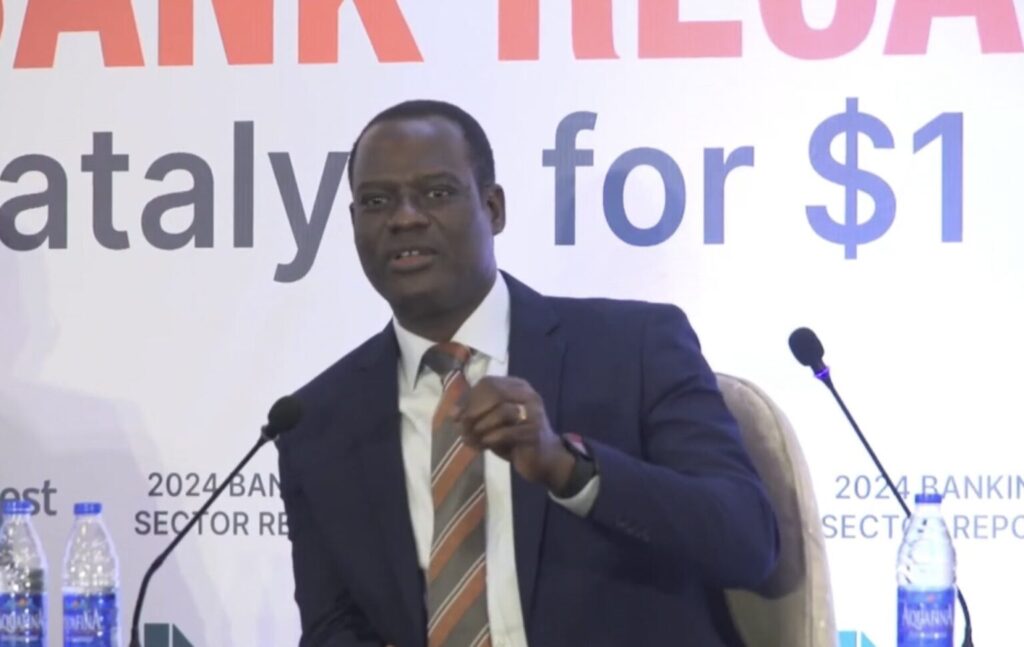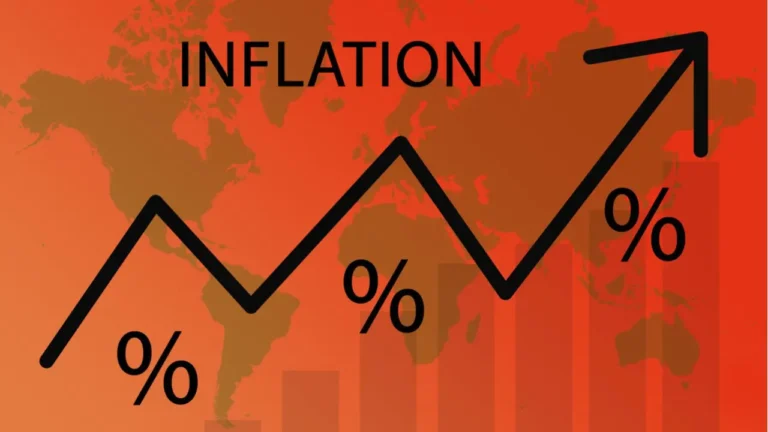
After three hours of heated debate, the House of Representatives advanced the Tax Reform Bills to the next stage on Wednesday, marking a significant step towards overhauling Nigeria’s tax system.
However, the debate revealed divisions, as lawmakers clashed over provisions threatening key agencies and raised alarms over potential constitutional breaches.
The bills, including the Nigeria Tax Bill 2024, the Tax Administration Bill, the Nigeria Revenue Service Establishment Bill, and the Joint Revenue Board Establishment Bill, were passed during a plenary session by Speaker Tajudeen Abbas.
While many lawmakers agreed that reforms to strengthen the economy are urgently needed, concerns were raised over the potential impact of specific provisions on key government agencies, including the Tertiary Education Trust Fund (TETFUND), the National Agency for Science and Engineering Infrastructure (NASENI), and the National Information Technology Development Agency (NITDA).
Before the passage, the House consolidated the four bills and debated their general principles. This followed a motion by the House Leader, Prof Julius Ihonvbere, with leave granted by the Speaker.
The consolidated bills include:
A Bill for an Act to Provide for the Assessment, Collection of, and Accounting for Revenue Accruing to the Federation, Federal, State, and Local Governments; Prescribe the Powers and Functions of Tax Authorities, and for Related Matters (HB.1756).
A Bill for an Act to Repeal the Federal Inland Revenue Service (Establishment) Act, No. 13, 2007 and Enact the Nigeria Revenue Service (Establishment) Bill to Establish Nigeria Revenue Service, charged with Powers of Assessment, Collection of, and Accounting for Revenue Accruable to the Government of the Federation and for Related Matters (HB.1757).
A Bill for an Act to Establish the Joint Revenue Board, the Tax Appeal Tribunal and the Office of the Tax Ombud for the Harmonisation, Coordination and Settlement of Disputes arising from Revenue Administration in Nigeria and for Related Matters (HB.1758).
A Bill for an Act to Repeal Certain Acts on Taxation and Consolidate the Legal Frameworks Relating to Taxation and Enact the Nigeria Tax Act to Provide for Taxation of Income, Transactions and Instruments, and Related Matters (HB.1759).
Leading the debate, Ihonvbere emphasised the need to overhaul the country’s tax system, describing the existing framework as outdated and inadequate for Nigeria’s current economic challenges.
Speaking on the general principles of the proposed legislation, Ihonvbere thanked the Nigerian Governors’ Forum for its valuable contributions, particularly its revision of the Value Added Tax (VAT) sharing formula, which addressed earlier concerns surrounding the bills.
He explained that the bills aim to modernise the tax system, empower citizens, and foster inclusive growth.
While most lawmakers supported the bills’ second reading, some raised concerns and called for a review of specific provisions.
Abubakar Fulata, who represents Birniwa/Guri/Kiri Federal Constituency of Jigawa State, expressed reservations about the absence of interpretation clauses in most bills except for the Tax Administration Bill. He warned that this omission could lead to misinterpretation and abuse during implementation.
Fulata also opposed provisions seeking to phase out certain government agencies, such as the TETFund, which he described as vital to the education sector.
The proposed Part X of the National Tax Bill (NTB) 2024 introduces a Development Levy imposed on the assessable profits of all taxable companies under Chapters 2 and 3.
TETFund, a beneficiary of the Education Tax, falls under this levy, along with other entities, including the Nigerian Education Loan Fund (NELFund), the National Information Technology Development Agency (NITDA), and the National Agency for Science and Engineering Infrastructure (NASENI).
Fulata expressed concern over Section 59(3) of the NTB 2024, which outlines how the Development Levy will be distributed from 2025 to 2030 and beyond. According to the proposed schedule:
In 2025 and 2026, TETFund will receive 50 per cent of the levy, NITDA 20 per cent, NASENI 5 per cent, and NELFund 25 per cent. From 2027 to 2029, TETFund’s share will rise to 66.7 per cent, while NELFund will get 33.3 per cent, leaving NASENI and NITDA with no allocation. From 2030 onwards, NELFund will receive 100 per cent of the levy, with no allocation for the other agencies.
“I don’t think we should phase out TETFund,” Fulata remarked, expressing concern over the bill’s potential impact on the education sector.
He also criticised inconsistencies in the bill, arguing that some clauses could conflict with constitutional provisions. Fulata emphasised the need to carefully review the 40 existing acts that the bill seeks to amend.
Also, the member representing Chibok, Damboa and Gwoza Federal Constituency in the House of Representatives, Ahmed Jaha, raised concerns over some provisions, describing them as areas requiring urgent attention.
Speaking to journalists in his office after the proposed legislation passed a second reading, Jaha noted that the way the bill was transmitted to the National Assembly by the executive had generated initial objections.
“First of all, the bill was transmitted despite rejection by the National Economic Council, elders across the country, and the Governors’ Forum, particularly the Northern Governors’ Forum,” he said. He added that the House of Representatives was divided when the bill was introduced, as some provisions were deemed to undermine fairness and good governance.
Jaha expressed opposition to the dual role proposed for Dr Zach Adedeji, the Chief Executive Officer of the Federal Inland Revenue Service (FIRS), who is also slated to chair the Nigerian Revenue Service’s board.
“You cannot be the Chief Executive Officer and at the same time the Chairman of the Board. In other words, you cannot be a judge in your own case,” he said, citing concerns about the concentration of power.
Despite his reservations, Jaha stated that lawmakers agreed to advance the bill to its next stage after receiving assurances from the Leader of the House that there would be no value-added tax (VAT) increase.
“Definitely, there is nothing like increasing the VAT, but we are all on the same page that the provisions in the reforms can help improve our collection efficiency ratio, which is very important,” he said. He also highlighted sections of the bill that he believes contradict the Nigerian Constitution, particularly Section 141(1), which grants the bill undue supremacy over constitutional provisions.
Jaha expressed strong objections to the proposed inheritance tax, arguing that it contravenes Islamic teachings, Christianity, and other religious practices. He stressed that Islamic law explicitly prohibits tampering with the estate of a deceased person.
“In Islam, you are not even allowed to take a packet of pure water from inheritance and give it to someone who is not an heir. The issue of collecting tax from what someone left behind is against Islam, and I believe it is contrary to many religious practices,” he said. Jaha maintained that lawmakers would continue scrutinising the bill to ensure it aligns with constitutional principles and respects religious beliefs.
In his contribution to the debate, Bamidele Salam (PDP, Osun) supported the bill, stating that it would ensure more resources are allocated to subnational governments, enabling them to drive development effectively.
He described the Nigerian tax administration system as outdated and duplicative, leading to stunted growth and discouraging investment. Salam, however, emphasised that the primary focus of tax reforms should be on the well-being and welfare of Nigerians.
Miriam Odinaka Onuoha, representing the Onuimo/Okigwe/Isiala Mbano Constituency, also supported the bill, commending its progressive nature. She noted, however, that taxation should be structured to balance income distribution, ensuring that the poor benefit while the wealthy contribute more.
Onuoha praised the bill’s employment relief provision, which grants tax exemptions to companies hiring employees earning N100,000 or less. She argued that this measure would incentivise businesses to create jobs and reduce unemployment.
Kuye Ademorin, representing Shomolu Federal Constituency, Lagos, also backed the bill, stating that the proposed legislation would strengthen the economy and enhance Nigeria’s global competitiveness. He urged his colleagues to focus on the general principles of the bill at this stage, rather than delving into specific challenges.
IN another development, the Senate yesterday revised bills establishing regional development commissions and the National Youth Service Corps (NYSC) Trust Fund to align their funding provisions with the Nigerian Constitution.
Senate President Godswill Akpabio, who presided over the session, stated that the amendments were essential to prevent breaches of constitutional law. He explained that the original funding clauses in the bills appeared to conflict with Section 162 of the 1999 Constitution (as amended), which governs the allocation of federally collected revenues.
The Senate adjusted Clauses 14 and 15 of the laws establishing the North-West, South-West, and South-East Development Commissions, as well as Clause 4(1) of the 2025 NYSC Trust Fund Establishment Bill. The amendments ensure that the commissions and the proposed Trust Fund adhere to constitutional provisions on public finance.
The revisions followed a motion titled “Re-committal of Bills to the Committee of the Whole,” presented by Senate Leader Opeyemi Bamidele (APC-Ekiti). Bamidele noted that the bills had already passed both the Senate and House of Representatives and had been forwarded to the Clerk of the National Assembly for transmission to President Bola Tinubu for assent. However, lawmakers observed that certain funding provisions did not align with constitutional guidelines.
“The Constitution is the supreme law of the land, and any legislation that contradicts it becomes null and void to the extent of its inconsistency,” Bamidele stated, citing Section 1, Subsections (1) and (3) of the Constitution. He added that to maintain legislative integrity, the Senate invoked Orders 1(b) and 52(6) of its standing orders to rescind earlier decisions and recommit the affected bills for review.
After the amendments, Senate President Akpabio confirmed that all bills now fully comply with constitutional mandates. “The concerns raised under Section 162 of the Constitution regarding the allocation and management of public funds have been adequately addressed,” he assured.


